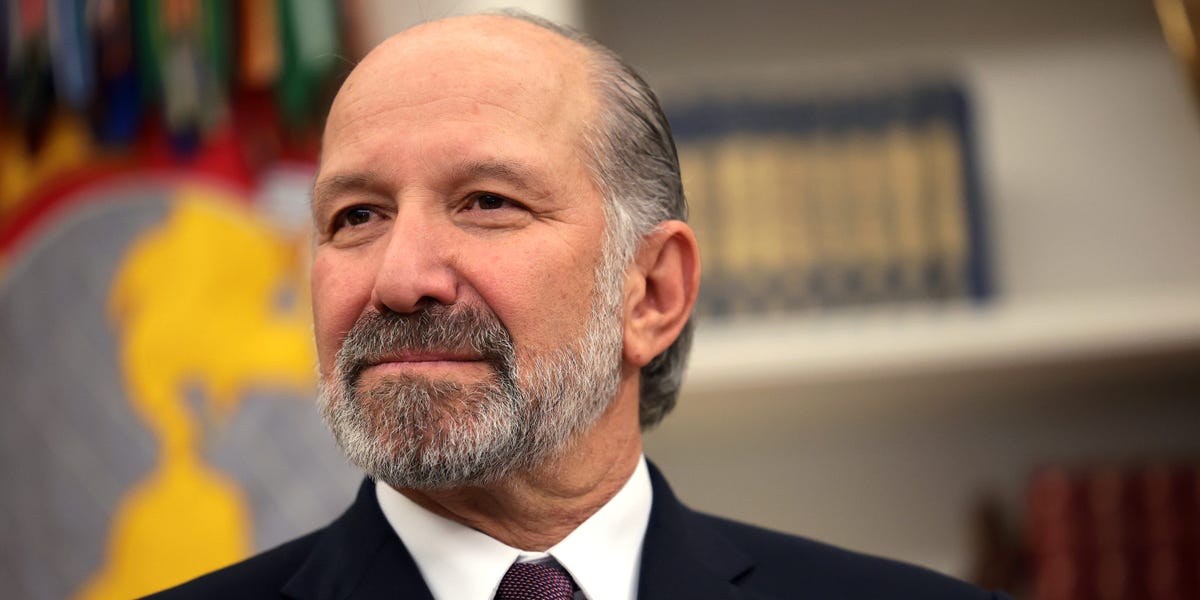Chips, Robots, and National Strategy: Lutnick Challenges US Manufacturing Paradigm
Manufacturing
2025-04-04 04:45:09Content

In a candid revelation, Lutnick highlighted the dramatic shift in electronics manufacturing, pointing out how the United States has gradually lost its technological production edge to Taiwan. "Our current landscape tells a stark story," he explained, "where nearly all of our electronic devices are now manufactured overseas, specifically in Taiwan—a consequence of policy decisions that effectively handed over our manufacturing capabilities."
The statement underscores a significant transformation in the global electronics industry, where strategic policy choices have reshaped the manufacturing ecosystem, allowing Taiwan to become a dominant force in technology production. Lutnick's comments reflect a broader narrative of industrial migration and the complex interplay between national policies and technological innovation.
The Global Electronics Shift: How Manufacturing Policies Reshaped Industrial Landscapes
In the intricate world of global manufacturing, a profound transformation has been quietly reshaping the technological landscape, with geopolitical decisions and economic strategies fundamentally altering where and how electronic devices are produced. The narrative of industrial production is no longer a simple story of local manufacturing, but a complex tapestry of international relationships, strategic investments, and policy-driven migrations.Unveiling the Hidden Dynamics of Global Electronics Production
The Transformation of Manufacturing Ecosystems
The contemporary electronics manufacturing sector represents a remarkable testament to globalization's transformative power. Once characterized by robust domestic production capabilities, nations have witnessed a dramatic shift in industrial paradigms. Countries that previously prided themselves on comprehensive manufacturing infrastructures have gradually ceded ground to emerging technological powerhouses, particularly in East Asia. Taiwan has emerged as a critical nexus in this global manufacturing revolution, strategically positioning itself as a pivotal hub for high-tech electronics production. The island's technological ecosystem has been meticulously cultivated through deliberate policy interventions, attracting significant international investments and developing sophisticated manufacturing capabilities that extend far beyond traditional industrial models.Policy Implications and Strategic Realignments
The migration of electronics manufacturing is not merely an economic phenomenon but a complex interplay of governmental policies, technological innovation, and strategic economic positioning. Nations have increasingly recognized that industrial policy can serve as a powerful instrument for economic transformation, with carefully crafted regulations and incentive structures capable of attracting and retaining sophisticated manufacturing capabilities. These policy frameworks have created intricate networks of technological production, where comparative advantages are continuously negotiated and redefined. The result is a dynamic global landscape where manufacturing capabilities are constantly evolving, challenging traditional notions of industrial sovereignty and economic independence.Economic and Technological Consequences
The relocation of electronics manufacturing has profound implications that extend well beyond immediate economic considerations. It represents a fundamental restructuring of global value chains, where technological expertise, infrastructure investment, and strategic positioning converge to create new economic realities. For developed economies that have experienced manufacturing exodus, this transition has necessitated significant adaptive strategies. The focus has increasingly shifted towards high-value technological research, design innovation, and advanced service sectors, recognizing that economic competitiveness in the digital age requires multifaceted approaches to industrial development.The Human and Technological Dimensions
Behind these macroeconomic shifts lie complex human narratives of adaptation, skill development, and technological transformation. Workers and industries have been compelled to reimagine their roles within increasingly globalized production networks, developing new competencies and embracing technological innovations that transcend traditional manufacturing paradigms. The electronics manufacturing migration represents more than an economic trend; it is a profound reflection of how technological capabilities, policy frameworks, and human ingenuity intersect to reshape industrial landscapes. As global dynamics continue to evolve, the story of electronics production will undoubtedly continue to surprise, challenge, and inspire.RELATED NEWS
Manufacturing

3D Printing Revolution: Breakthrough Technologies Reshaping Manufacturing Landscape in 2025
2025-02-28 14:45:46
Manufacturing

Silicon Carbide Powerhouse: Schunk Group Expands Portfolio with Strategic ESK-SIC Acquisition
2025-03-01 11:10:32
Manufacturing

Biotech Giant Amgen Pumps $900M into Ohio Expansion, Signaling Major Growth Strategy
2025-04-25 22:40:33





